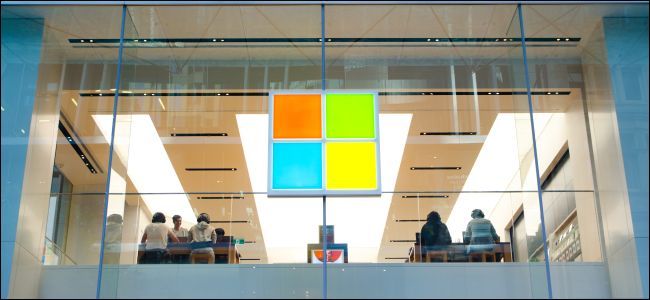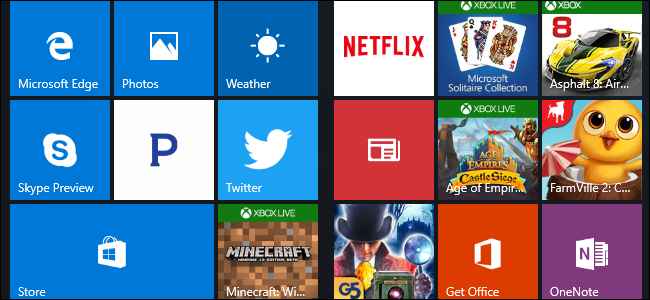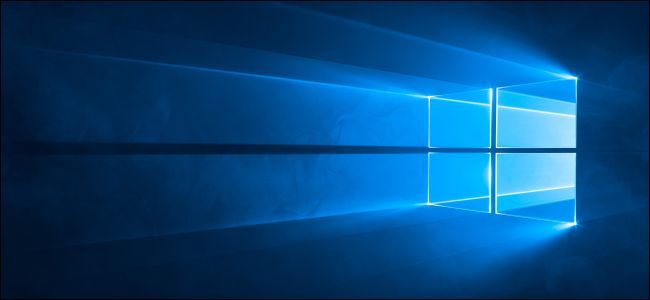Quick Links
Once again, sensationalist clickbait is claiming Microsoft will soon require a subscription fee to "rent" your Windows operating system. This just isn't true. Microsoft's "desktop as a service" plan is only for businesses, and it also includes hardware---not just software.
Look, there are a lot of things I don't like about Microsoft. Windows 10 is loaded down with advertising, and Microsoft is pushing subscription fees for everything from OneDrive file storage to ad-free Solitaire. That's where Microsoft is trying to extract more money.
Here's What "Microsoft Managed Desktop" Actually Is
This particular round of misinformation was inspired by a new subscription service named "Microsoft Managed Desktop." One particularly misleading article by Steven J. Vaughan-Nichols over at Computer World says Microsoft is "getting ready to replace Windows 10 with the Microsoft Managed Desktop." But that's not true at all.
"Microsoft Managed Desktop" is subscription service for businesses, and it includes the Windows 10 operating system. It doesn't "replace" Windows 10 at all.
As Mary Jo Foley explains in a level-headed article over at ZDNet, Microsoft Managed Desktop will be a single monthly fee that lets a business lease a physical PC that's automatically provisioned (set up) for that business. This PC will run Windows 10 and Microsoft will keep the operating system up to date and ensure those updates don't cause problems.
Again: This is an optional subscription service for businesses that includes a lease of physical PC hardware, which happens to be running Windows 10. Those businesses aren't just paying for software.
You probably don't want this at home, but businesses can pay a single monthly fee to get a fleet of PCs and have Microsoft manage them. The business doesn't need a big IT department. It doesn't even need to sink a bunch of money into purchasing PC hardware up front, either.
Of course, this won't be the only option for businesses. Businesses can keep buying PCs with Windows 10 Professional on them, or they can use Windows 10 Enterprise.
And, for the record, organizations are already "renting" Windows 10 Enterprise through volume licensing, where they pay per user per year. That's been going on since long before Windows 10.
Microsoft Already Gets a Cut From Every PC Sold
Okay, so Managed Desktop is just for businesses. But maybe Microsoft plans to charge average Windows users a monthly fee to use Windows 10, too. People have been worried about this ever since Windows 10 and the concept of "Windows as a service" was announced. If it's a service, surely Microsoft will start charging for it at some point---the same way it charges for Office 365. Right?
Well, I wouldn't be so sure. Think about it---right now, PC manufacturers pay Microsoft for Windows 10 licenses. Every time you buy a PC, Microsoft gets a cut from the manufacturer. If you build your own PC, you have to buy a license. It's a system that's worked well for Microsoft.
What's the alternative? Should Microsoft start charging average Windows users a monthly fee to use their PCs? The average person buying a $200 PC at Best Buy definitely isn't going to tolerate a monthly fee just to use their PC. Many people would abandon Windows PCs for surprisingly capable Chromebooks, while others would cling to Windows 7 for dear life. Microsoft just can't afford to do this.
Maybe Microsoft will just charge for Windows 10 updates instead, you might think. But Microsoft can't just start charging for security updates---Microsoft would get dragged through the mud and sued for not supporting Windows. Hell, Microsoft is still supporting Windows 7 with security updates today. And, even if Microsoft started charging for Windows 10 feature updates, many people wouldn't care and would be happy to not update.
Even in a nightmare scenario where Windows 10 turns into a subscription service, Microsoft won't be able to deactivate your PC without some serious legal consequences. Your Windows 10 license will still continue functioning normally.
Windows 10 is Already Full of Ads and Subscriptions
This doesn't mean it's all sunshine and rainbows. Microsoft has been trying to extract more revenue from Windows 10. That's why Windows 10 is packed with advertisements, pushes you towards Bing, and encourages you to buy OneDrive storage. Windows 10 even comes with Candy Crush in the Start menu, and this game contains microtransactions. Microsoft gets a cut of those microtransactions, so Microsoft has a vested interest in you blowing money on Candy Crush.
Microsoft also gets a cut of everything sold in the Microsoft Store app, so it wants you to buy games and rent videos from there. Really, Windows 10 is becoming increasingly packed with this stuff---the Solitaire app will sell you a monthly subscription to remove ads from Solitaire, and you can now even buy PC hardware in the Store app.
I expect to see more and more of this going forward. Microsoft will try to squeeze as much revenue from Windows 10 as it can, and it's going to get annoying---it already is annoying. But locking down your desktop until you pay a monthly subscription fee is way too heavy handed, and Microsoft knows it's better off not doing that.
Microsoft Doesn't Even Charge for Windows Upgrades Anymore
This rumor just keeps coming back, no matter what Microsoft does. It's funny because Microsoft is actually giving more of Windows away for free than it used to. When Windows 7 came out, you had to pay to upgrade from Vista. When Windows 8 came out, you had to pay to upgrade from 7. But Microsoft isn't focusing on big new versions of Windows it can charge for anymore. Instead, Microsoft didn't charge many people for Windows 10 in the first place, and Microsoft adds a bunch of new features to Windows 10 every six months, for free. Microsoft has no plans to release a Windows 11 and charge for it.
Let's face it---if Microsoft wanted to make more money from Windows, it could stop offering free upgrades to Windows 10 and charge for new versions of Windows every few years. Microsoft could then offer a subscription service that always gave you the latest version of Windows as an alternative to buying each new Windows release as it came out. But Microsoft isn't even doing that.
Here's one big reason why: Microsoft wants everyone on the latest versions of Windows. This means it don't have to waste as much time updating multiple old versions of Windows with the latest security patches. It also brings more Windows users onto the same platform, letting developers---and Microsoft---target those users with new applications and services.
Hey, An Optional Windows Subscription Could Be Nice
While I haven't seen any real indications Microsoft is moving in this direction, a subscription could be a useful option---emphasis on the word "option."
One day, Microsoft might roll out a subscription service that lets you lease a PC with Windows 10 from Microsoft for a monthly fee, just like how businesses can. As with the Microsoft Managed Desktop service, this would be an option rather than the only way to do things. Some people might prefer it.
Or, Microsoft could announce an Office 365-style subscription to Windows 10. Imagine paying $100 a year for a family subscription with five Windows licenses that you could move between PCs and bonus features like extra OneDrive storage. This would be especially useful if you're building your own PCs, as Microsoft charges $120 for a single Windows 10 Home license.
After all, that's how Office 365 works today---you can pay $100 a year for Office 365 Home, which lets five people install the Office suite and even move between PC and Mac (and includes the mobile versions), and each of those people gets a full 1 TB of OneDrive storage. And there's also a personal version for just one person that's $70 per year.
Or, if you don't like that, you can continue buying a boxed copy of the latest version of Office. But the subscription is a good deal if you need Office, as five Office 2016 Home & Student licenses would cost you $150 each for a total of $750.
Image Credit: BArliftAtoz2205/Shutterstock.com, Bodnar Taras/Shutterstock.com.




